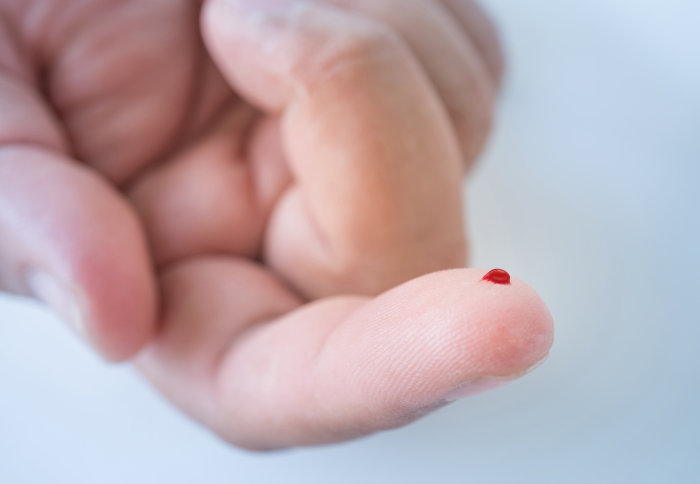How could a fingerprick test help tackle antimicrobial resistance?

A group of Imperial students are working to address antimicrobial resistance with a simple fingerprick blood test.
The technology, known as QuickCount, is a point-of-care blood analysis tool to help doctors diagnose whether a patient has a bacterial or viral infection.

Antibiotics are not effective for viral infections, but the symptoms of bacterial and viral infections can appear very similar. The overuse and misuse of antibiotics are key factors contributing to antibiotic resistance.
PhD students Zainab Ahmed, Mohit Devgan, Pashiini Supramanian and Callum Hays, hope that making blood analysis more accessible will lead to more accurate diagnosis and therefore a reduced use of antibiotics.
The team hopes their QuickCount prototype may be trialed by a hospital in India.
How it works
The test would work by counting the number of neutrophils in the blood. Neutrophils are a kind of white blood cell that are increased when people have a bacterial infection.

However, currently this kind of analysis requires blood to be sent off for lab testing, which is expensive and time-consuming. QuickCount’s inexpensive technology would be powered by a smartphone app, meaning it could be used quickly and easily in a doctor’s surgery or hospital.
Callum, one of the team members, said: “We’re taking an old technology and bringing it into the 21st century. Instead of requiring huge machines and specialist knowledge, QuickCount would work through a smartphone app in the palm of your hand.
“Sir Alexander Fleming discovered penicillin at Imperial 90 years ago. We want to build on his legacy by working to tackle the threat of antibiotic resistance. We hope QuickCount could be part of the solution.”
Hacking solutions
The team are all members of Imperial College Advanced Hackspace (ICAH), which provides access to specialist manufacturing equipment, training, to help anyone at the College turn their ideas into real breakthrough prototypes and solutions.

ICAH supported the team with Boost Grants, and earlier this year, QuickCount went on to win £10,000 proof-of-concept funding at the Programmable 2018 competition, which is run by the College’s Enterprise Lab.
Fellow team member Mohit said: “The support of ICAH and the Enterprise Lab has been absolutely invaluable. We could not have got the project to this stage without it.
“Currently we are working on developing our prototype - we already have interest from a hospital in India who may want to trial QuickCount once it’s ready. We are very excited about this next stage.”
- Image credit (main image): NatchaS/Shutterstock
- Image credit (neutrophil): Jarun Ontakra/Shutterstock
Article text (excluding photos or graphics) © Imperial College London.
Photos and graphics subject to third party copyright used with permission or © Imperial College London.
Reporter
Deborah Evanson
Communications Division